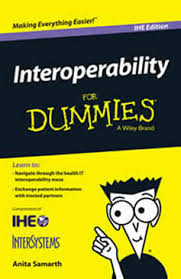
A survey by the Medical Protection Society (MPS) reveals that 84% of doctors think that online records will mean spending more time explaining the contents of records to patients. Although doctors and the public agree the most important use of medical records is to give the doctor an overview of all the medical treatments a patient has received, there is a mismatch in expectations about how records should be written.

Dr Nick Clements, Head of Medical Services at MPS says: “Online medical records have the potential to transform patient care and making these available electronically will undoubtedly increase patient access. It’s good to see that 68% of doctors and 63% of the public agree that the most important purpose of medical records is to give the doctor an overview of all medical treatments a patient has received and to help the doctor manage their healthcare.
“However our survey also showed differing expectations on how records should be written. If this issue isn’t reconciled before online records are introduced, this could lead to tension and confusion between doctors and patients.”
For example, the findings from a survey of the public showed that three in four (75%) agree that medical records should be written in simple language so that patients can understand them without assistance or explanation, but only one in five doctors (21%) think that medical records should be written this way.
In response to this finding Dr Clements notes: “This suggests that doctors strongly believe medical records are principally for health professionals and should be administered by themselves. This could be problematic as it is at odds with what it appears patients expect – that medical records are about them and should be written with them in mind. Doctors may have to be prepared to simplify and adjust how they write their notes, or spend more time explaining the record to the patient, which was a major concern for 84% of doctors surveyed.”
Responding to these concerns Dr Clements says: “It’s important that the patient understands their records so that they can share in the decision-making process, but there are risks in asking doctors to write medical records using plain language. A GP will need to consider whether a clinical term will be understood or whether an entry could cause distress or anxiety for the patient. If doctors avoid using clinical terms, medical jargon, acronyms, and even shorthand, to make it more ‘readable’ for the patient, this could compromise the usefulness of the record for other healthcare professionals and add considerably to their length without increasing their contribution to patient care. Doctors adopting such an approach will also have to be mindful of their professional and contractual obligations, including the GMC’s Good Medical Practice guidelines to ‘keep clear, accurate and legible records, reporting the relevant clinical findings, the decisions made, the information given to patients, and any drugs prescribed or other investigation or treatment’.

“The introduction of online medical records may represent a significant shift in how patients engage in their healthcare, but without comprehensive educational support for both doctors and patients, frustration, confusion and complaints will arise from what should be a positive step forward in healthcare.”
Be a part of Elets Collaborative Initiatives. Join Us for Upcoming Events and explore business opportunities. Like us on Facebook , connect with us on LinkedIn and follow us on Twitter , Instagram.













